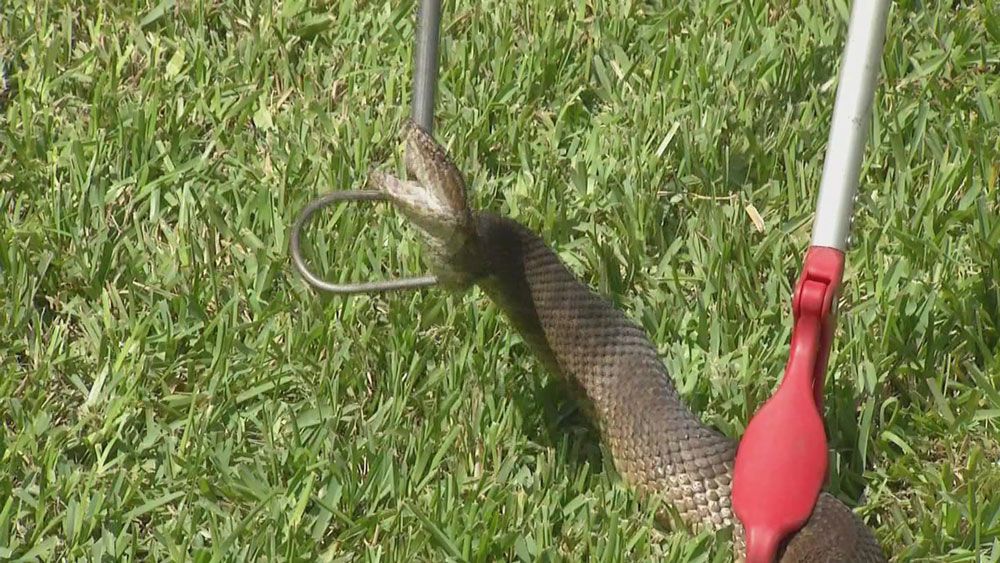LAKE MARY, Fla. — Snakes -- you may not like them, but this time of the year you may see more calling your backyard their new home. That's what happened to one woman living in Lake Mary.
- Cottonmouths are being seen more this time of year
- The snakes prefer water areas, and grow between 2 and 4 feet in length
- The snakes are venomous, but tend to only attack when provoked
- RELATED: Online Guide to Florida Snakes
We were told one homeowner was just edging the corners of her lawn near her pool when she got about this close to the very venomous cottonmouth snake.
Fortunately, her neighbor is a well-known animal trapper. He caught the snake in minutes.
The trapper told us however, things could've played out much differently because one bite from this cottonmouth could land you in the hospital or worse.
Wildlife trapper Bob Cross says this time of the year more of them are spotted around your yard, looking for shelter and shade.
"I don't think there really such a thing as a snake season, but the closest thing to that is the spring when the rains start coming," said Cross, who owns Critter Capture.
This time last year, Cross found 13 cottonmouths in one woman's yard in just 30 days. He said he believes that was a unique situation because there was a drought, and water near her home.
We were told the snake that was captured will stay alive and taken to the Discovery Reptile Center in DeLand, which will then milk the snake to make antivenin.
What to look for with a cottonmouth
Cottonmouths are one of six venomous snakes found in Florida, but they are common throughout the southeast as well. The Florida Fish and Wildlife Conservation Commission says they are often confused with the nonvenomous water snake.
The cottonmouth, or water moccasin, is usually between 2 and 4 feet in length. Young snakes are brown or tan with reddish brown crossbands and bright yellow tail tips. Adults will be much darker, with just a hint of that original pattern.
Cottonmouths are found in Florida's wet areas, like streams, lakes, retention pounds, swamps and even roadside ditches. If they wander far from water, they can be found in bushes or trees.
Cottonmouths are not prone to attack unless provoked, but their bite is very painful and the venom is dangerous. A person bitten by one should get immediate medical help.



